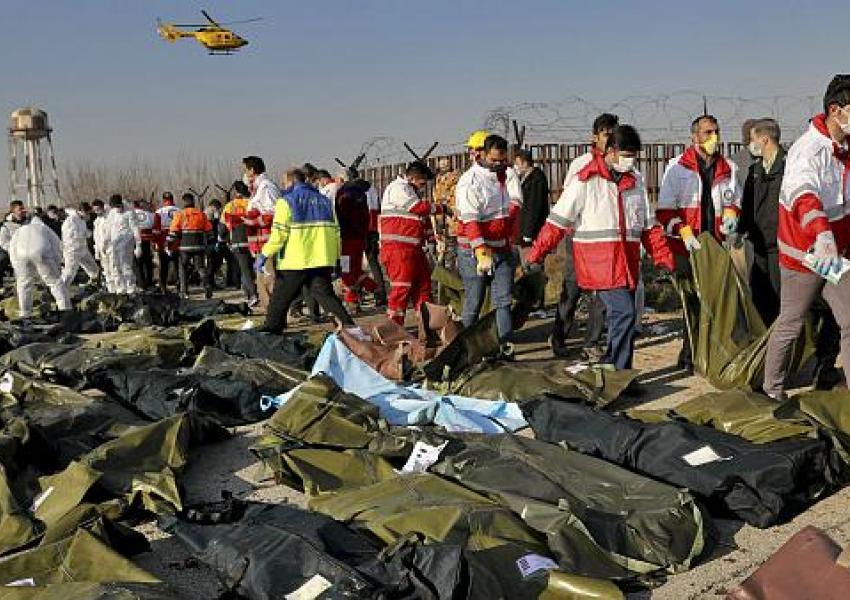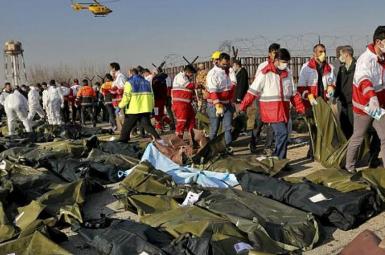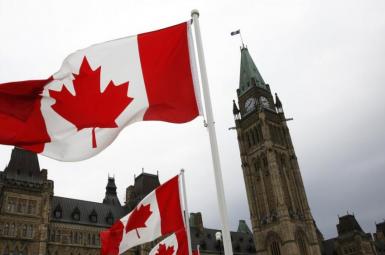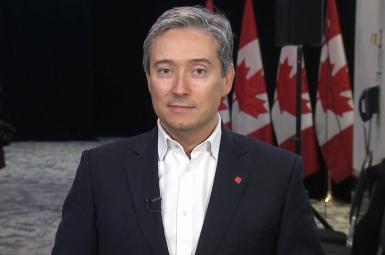
Ottawa Says Relatives Of Ukrainian Plane Victims Can Apply To Live In Canada
Canada is to offer a pathway to permanent residency for relatives of those who died in the January 2020 air disaster when Iran’s Revolutionary Guards shot down a Ukrainian airliner – with the scheme explained by Immigration Minister Marco Mendicino to Iran International TV in an interview on Thursday.
The program – open for applications for a year – will apply not just to immediate families of the victims, but to aunts, uncles and cousins. Of the 176 passengers and crew who died, according to the Ukrainian government 82 were Iranian, 63 Canadian, ten Swedish, four Afghani, three British, and three German. Of 11 Ukrainians, nine were the crew. Eighty-five were already either Canadian nationals or held Canadian residency.
Iran’s Revolutionary Guards shot down the Ukraine International Airlines flight bound for Kyiv shortly after it took off from Tehran Airport in the early hours of January 8, 2020, with Iranian forces on high alert during a regional confrontation with the United States. The plane was shot down, Iran later said, due to human error in aligning a mobile missile-defense battery.
In the Iran International interview, which followed Mendecino's announcement of the plan in Ottawa, the minister said he had had a "very moving conversation" with families unable to attend his press conference and speak with him directly. "It was extremely clear to me that they acknowledged the efforts of the [Canadian] government but there is still work to be done and we acknowledge that too.”
Mendicino said the scheme was intended to “reunite” as many of the victims’ families as possible. "Today was an important step towards the journey of healing and justice," he told reporter Mahsa Mortazavi. "We care about the families. We know that this has been a very difficult time and we really do want to demonstrate our support, our solidarity, our compassion."
Of the 176 on the flight, 138 were going to Canada. While some were dual nationals, 55 were Canadian citizens and 30 had permanent residency in Canada. The others going to Canada were mostly university students and their families.
Mendicino said the Canadian government would be as inclusive and flexible as possible in deciding who was a relative and eligible to take up the pathway to Canadian residency. However, he said the families of those who were not Canadian citizens or permanent residents needed to go to Canada to benefit from the program.
On Thursday Canadian Foreign Minister Marc Garneau condemned Tehran's “unconscionable” conduct since the airliner was shot down. “We are going to continue to pursue them so we have accountability,” Garneau told a committee of legislators. Both Canada, which has not had diplomatic relations with Iran since 2011, and Ukraine rejected Iran's report on the incident.








